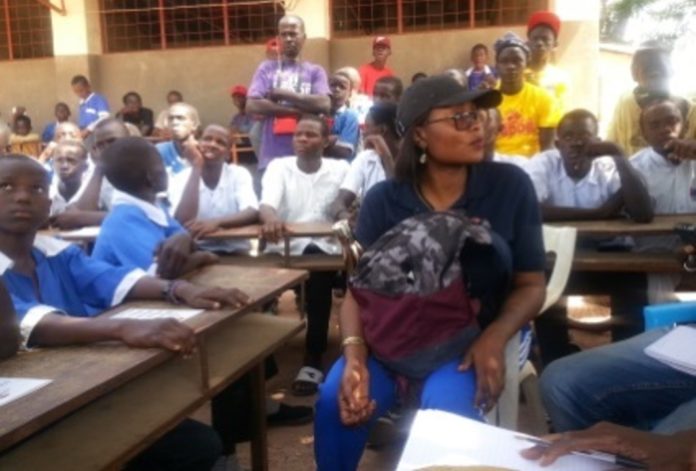By Nelson Manneh
The Constitutional Review Commission (CRC), continues to engage residents of URR in particular the village of Kulari and environs in the Tumana District of the Upper River Region, to hear and receive their contributions towards the review process of the 1997 Constitution.
On Monday November 26th 2018, which was day three in the second leg of their tour, the CRC team met people in these villages to hear them make their suggestions and contributions on what the new Constitution should make provision for. Most of the youth in Tumana District who made contributions, said Chiefs and Alkalos should not be appointed by the president, but should instead continue to lead by the traditional line of their appointment, which is through inheritance; that Governors on the other hand, should be elected by the people.
Amadou Manneh a native of Badari village said the new Constitution should make provision for diaspora Gambians to vote, if they have a valid voter’s card. “Most of these people in the diaspora, contribute immensely towards the development of this country, and should therefore be given the right to contribute during the decision-making process of the country,” he said.
Manneh said those prisoners who are citizens, should not be deprived from voting. “They should be provided with ballot boxes in prison and allowed to vote,” he said.
“Term limit is a very sensitive and important issue. Our leaders become demi Gods if they stay in power for long. The new Constitution should make provision for them to give chance to others, after serving for two terms of five years each, making it ten years altogether,” he said.
Commissioner Yankuba Manjang, the youth representative of the CRC said, citizenship is an important and sensitive issue that needs logical reasoning. Manjang asked his fellow youth if they are satisfied with the previous Constitution’s position on citizenship, and the death penalty.
Muhammed Sumareh suggests that one should be a Gambian citizen if both parents are Gambians or at least one of them. “This can be by marriage if you get married to a man or woman who is a Gambian.”
Sumareh added that if it comes to naturalization, one should spend a minimum of fifteen years and should have all the requirements without any criminal record to become a citizen.
On the death penalty Sumareh said if someone kills a person, the individual should be killed. “Not to be jailed for life, but to be killed instantly. If a person is jailed for life, he can be freed or pardoned by a new president, which is not fair,” he said.
The Commissioners also engaged the women to seek their opinion on what they think the new Constitution should make provision for.
Meanwhile the CRC, on Tuesday November 27th 2018, held similar engagements with the people of Koina and environs, in the Kantora District of the Upper River Region.
Speaking to the people in Koina, Commissioner Lamin S Camara said the constitution belongs to every Gambian.
In engaging the gathering, Commissioner Camara explained some of the things that were captured in the 1997 constitution and asked their opinions on whether to change them or not.
Among them Lawyer Camara said is the death penalty. “In the 1997 Constitution, if one kills someone, the person who commits the crime should be killed. If that satisfies you or you want it change, is left to you, as your contribution in the making of the new Constitution.
He explained the types of citizenship and how they want it in the proposed new Constitution. “What of the term limit. Do you want it to be part of the new Constitution? Those in prison, should they vote?” he questioned.
In responds to Commissioner Camara’s explanations, Aja Sainey Sanyang of Koina, said the death penalty is a sensitive issue and should be captured in the new Constitution. On citizenship, she said if a child is born in the Gambia, and one of the parents is Gambian, the person should be a citizen. “Those born in the Gambia of foreign parents, should be Gambians,” she said.
Sambala Trawally a student of Koina Upper Basic School, said there should be term limit to the presidency, for people not to abuse power; that the new Constitution should make provision for this. “If you rule for ten years with two terms of five years, you should give chance to others,” he said.
Trawally said competent Gambian lawyers should take up responsibility as Chief Justice. “If we do not appoint our own people, it is better not to go or send our children to school,” he said.
The CRC will continue to engage the people of Kudang and Brikama Ba in Lower Fulladou and Niamina West in the Central River Region.
















